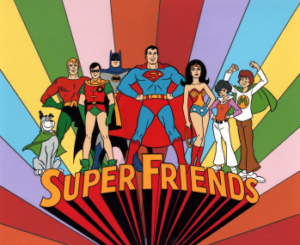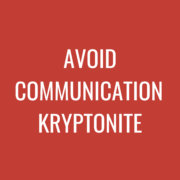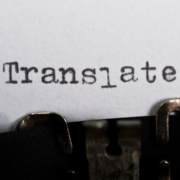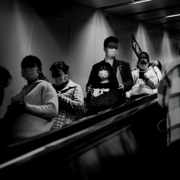Crisis, communication and COVID-19
It’s currently a tough time for brands, this won’t come as a surprise seeing as it’s a difficult period for most. In light of this, let’s spare a moment for the many celebrities currently imprisoned in their gilded cages, mansions and estates, the dreamers who dare to imagine a world with no possessions, greed or hunger. To begin with, 2020’s most gloriously ironic display of cognitive dissonance has proven once more that no one likes to be lectured by millionaires. That’s just for starters, brands have much to learn from Gal Gadot’s Superfriends, the main lesson being that well-considered communication is important, now more than ever.
That’s why we’ve put together a selection of tips to help brands avoid communication kryptonite:
Table of Contents
1. Get the tone right
Brands should prioritise tone which means exercising sensitivity and avoiding the impulse of appearing too celebratory. That means avoiding things like, “Covid-19 big blowout sales” and “corona specials!!”. Of course, everyone loves to snag a bargain, yet be conscious of how this may be perceived. By all means, communicate in an optimistic manner but be warned; excessive levels of joy may appear inauthentic.
It’s easy to criticise a brand’s response to the coronavirus crisis, but marketing teams have to eat and pay rent as well. Still, organisations must avoid cynical attempts to benefit from the crisis. The solution is to tell human stories and provide stakeholders with authentic, useful communication that enriches customer lives at a difficult time.
2. Avoid cliches like the plague (sorry, we couldn’t help ourselves)
So your brand has tweeted out #stayhome, well bully for you. Really though, in a world gone mad, no one needs more platitudes, they are grating and unnecessary. Nothing will turn your customer base off faster than a brand attempting to benefit from a crisis without contributing anything of substance. Great brand communication in a crisis is human and relevant to the insecurities of your audience. Cliches only build walls between your customers and brand.
3. Authenticity
Authenticity was important before the crisis, it’s since become indispensable. Empathise with customers and employees, they are frustrated and scared, these fears should be acknowledged. Most national governments are in complete disarray so take solace in the fact that your brand is not expected to have all the answers. Instead, use this time to prove your brand’s humanity and build relationships. Say it with me now and say it loud “we are uncertain and proud”.
4. Employees
Though it goes without saying, employees should be treated like the indispensable brand assets that coronavirus has shown them to be. Brands must ensure they are not just walking the walk, but talking the talk. This means transparent communication with workers and customers to indicate how your brand is keeping employees safe and healthy.
Don’t just state it, provide examples of how you are supporting your people. When this crisis passes, employees and customers will remember how you acted, so it’s important to have tangible proof.
Make it human
The coronavirus crisis is not an insurmountable challenge, but will require brands to quickly adapt. Placing authentic human interaction at the core of communication strategy will undoubtedly make your brand more resilient. To do this company leadership must encourage the open and honest communication that will allow stakeholders to overcome the struggles of COVID-19. Being human; it’s so easy even babies can do it. Now it’s time for brands to follow the lead.
Continue Reading:5 copywriting tips to put a little pep in your step
About the Author
A Londoner driven to Rotterdam by a quarter-life crisis, Brexit and despair. My first gig was writing cover letters in exchange for beer. Now I mainly trade creativity for cash, currently for HLO Branding. A passionate non-cyclist and Al Green enthusiast.

 opywriter’s-perspective-copywritercollective
opywriter’s-perspective-copywritercollective contentmarketing-copywritercollective
contentmarketing-copywritercollective copywritingtips-copywritercollective
copywritingtips-copywritercollective  work-lifebalance-copywritercollective
work-lifebalance-copywritercollective Translators-copywritercollective
Translators-copywritercollective challengesoffreelancers-copywritercollective
challengesoffreelancers-copywritercollective mojoworking-copywritercollective
mojoworking-copywritercollective Clients-copywritercollective
Clients-copywritercollective fiction-writing-copywritercollective
fiction-writing-copywritercollective